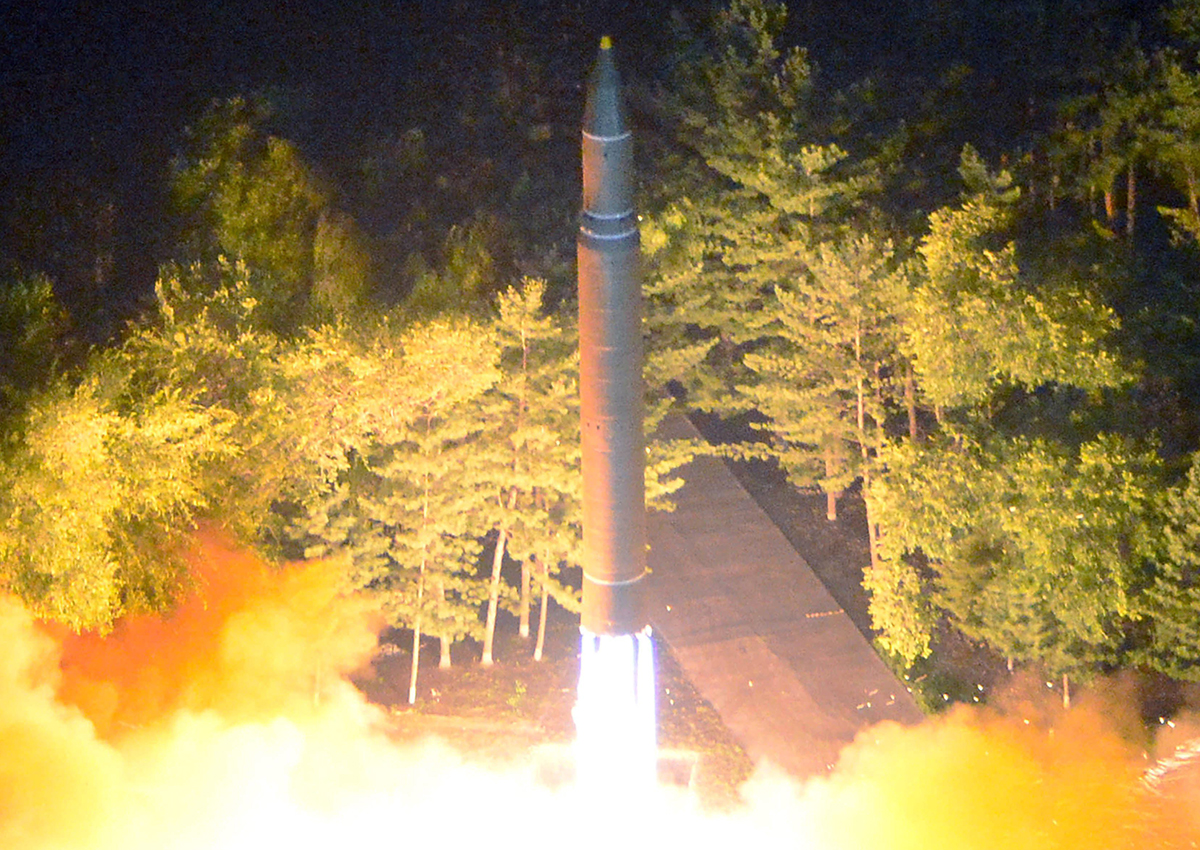It doesn’t seem all that long ago that the opposition Conservatives were pressing the Liberal government to sign on to the U.S.-led ballistic missile defence system.

In fact, it was more than a decade ago. Except, though, it was also just a few days ago. And in between, of course, we had a very long stretch where those very same Conservatives were in a position to do something about it. How did we get here?
Obviously, the advancements in North Korea’s capabilities have added some urgency to the threat and those who might previously have had hesitations over ballistic missile defence (BMD) should probably reconsider. However, proponents of BMD have always envisioned this possible scenario as a reason why such a defence system is necessary.
Earlier this week at the Conservative caucus retreat in Winnipeg, foreign affairs critic Erin O’Toole urged the Trudeau government to abandon their opposition to BMD and work with the U.S. and other allies to guard against the North Korea threat — echoing what he had said the week before.
For now, the Prime Minister is standing firm, saying that he doesn’t expect Canada’s position to change “anytime soon.”
This is unfortunate. There would appear to be few palatable options when it comes to eliminating the threat posed by North Korea, and so BMD is an entirely logical response to the new reality of a North Korea armed with nuclear-tipped ICBMs capable of reaching North America. Moreover, an effective BMD system can serve as a deterrent to such rogue regimes and their ICBM aspirations.
Canada’s position has put us out of step with our allies. Certainly, if we believe in continental defence and working closely with the Americans — as we do with NORAD — then BMD is a logical evolution of that approach.
But it’s not just the U.S. As the Canadian Global Affairs Institute has pointed out, our NATO allies have embraced the principle of missile defence. NATO’s 2012 Deterrence and Defence Posture Review was quite clear: “The proliferation of ballistic missiles is a growing concern for the Alliance and constitutes an increasing threat to Alliance security. NATO’s ballistic missile defence capacity will be an important addition to the Alliance’s capabilities for deterrence and defence.”
Unfortunately, this issue has become politicized here in Canada. The Liberals have pandered to concerns about U.S. militarism and unilateralism, while the Conservatives — at least in opposition — have hammered the Liberals for seemingly mishandling and undermining our alliances.
Yet the Conservatives seem to be playing some weird politics themselves. And the Americans have noticed, as revealed in a leaked 2005 diplomatic cable sent by U.S. ambassador Paul Cellucci to the U.S. State Department:
“The Conservative Party, though professing to be supportive of Canadian participation in missile defense, has used this issue to further its political ambitions. Rather than make the case why Canada should support missile defense, the official Opposition consistently has sought to exploit the Liberals’ internal divisions on the issue.”
Of course, the Conservatives formed the government the next year and could have proved Cellucci’s cynicism wrong by actually following through on their rhetoric and signing on to BMD. Yet for some mysterious reason, it never happened.
Maybe it’s fair to say that if the Conservatives were in power today the recent developments concerning North Korea might have finally convinced them to act, but who knows.
Had both the Liberals and Conservatives been less inclined to play political games with one another, we probably would have resolved all of this some time ago. It’s to the shame of both parties that we’re still debating this in 2017.
The recent developments concerning North Korea may very well be a genuine game changer. Let’s see if our politicians have the maturity to treat it as such.
Rob Breakenridge is host of “Afternoons with Rob Breakenridge” on Calgary’s NewsTalk 770 and a commentator for Global News.









Comments